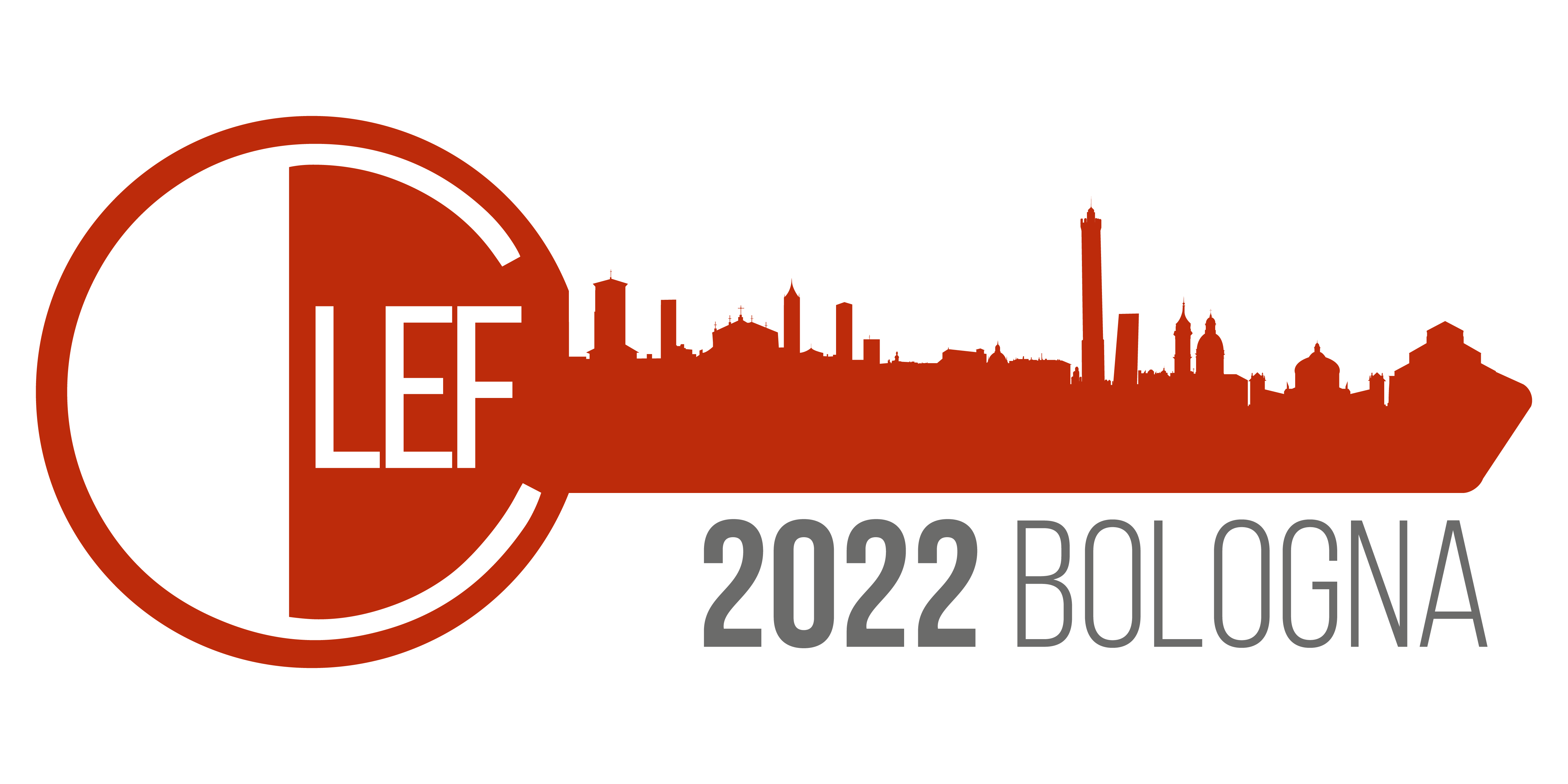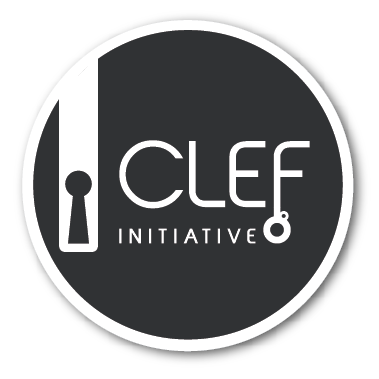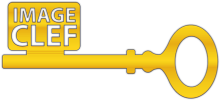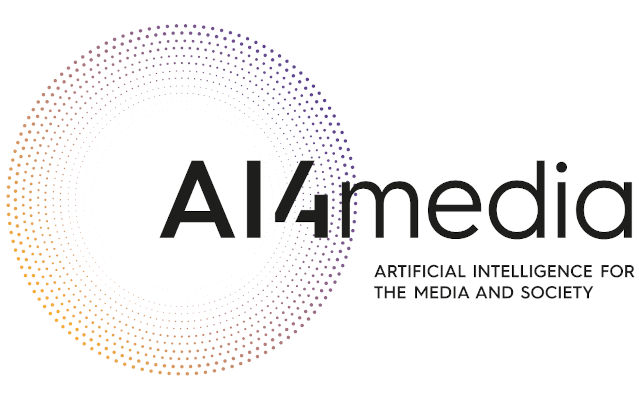- ImageCLEF 2025
- LifeCLEF 2025
- ImageCLEF 2024
- LifeCLEF 2024
- ImageCLEF 2023
- LifeCLEF 2023
- ImageCLEF 2022
- LifeCLEF2022
- ImageCLEF 2021
- LifeCLEF 2021
- ImageCLEF 2020
- LifeCLEF 2020
- ImageCLEF 2019
- LifeCLEF 2019
- ImageCLEF 2018
- LifeCLEF 2018
- ImageCLEF 2017
- LifeCLEF2017
- ImageCLEF 2016
- LifeCLEF 2016
- ImageCLEF 2015
- LifeCLEF 2015
- ImageCLEF 2014
- LifeCLEF 2014
- ImageCLEF 2013
- ImageCLEF 2012
- ImageCLEF 2011
- ImageCLEF 2010
- ImageCLEF 2009
- ImageCLEF 2008
- ImageCLEF 2007
- ImageCLEF 2006
- ImageCLEF 2005
- ImageCLEF 2004
- ImageCLEF 2003
- Publications
- Old resources
You are here
ImageCLEF 2022
Sponsors
Motivation
ImageCLEF 2022 is an evaluation campaign that is being organized as part of the CLEF initiative labs. The campaign offers several research tasks that welcome participation from teams around the world. The results of the campaign appear in the working notes proceedings, published by CEUR Workshop Proceedings (CEUR-WS.org). Selected contributions among the participants, will be invited for publication in the following year in the Springer Lecture Notes in Computer Science (LNCS) together with the annual lab overviews.
For the 2022 edition, ImageCLEF organizes 4 main tasks with a global objective of promoting the evaluation of technologies for annotation, indexing and retrieval of visual data with the aim of providing information access to large collections of images in various usage scenarios and application domains: medical, nature, Internet and social media.
Target communities involve (but are not limited to): information retrieval (e.g., text, vision, audio, multimedia, social media, sensor data), machine learning, deep learning, data mining, natural language processing, image and video processing; with special emphasis on the challenges of multi-modality, multi-linguality, and interactive search.
#imageclef, and Facebook @ImageClef.
ImageCLEF schedule
Each of the tasks sets its own schedule, so please check the corresponding task webpage for specific dates. A (tentative) global schedule can be found below:
- 15.11.2021: registration opens for all ImageCLEF tasks
- 17.01.2022: development data release starts (depends on the task)
- 14.03.2022: test data release starts (depends on the task)
- 06.05.2022: deadline for submitting the participants runs (depends on the task)
- 13.05.2022: release of the processed results by the task organizers (depends on the task)
- 27.05.2022: deadline for submission of working notes papers by the participants
- 13.06.2022: notification of acceptance of the working notes papers
- 01.07.2022: camera ready working notes papers
- 5-8.09.2022: CLEF 2022, Bologna, Italy
The CLEF Conference
 |
 |
ImageCLEF lab and all its tasks are part of the Conference and Labs of the Evaluation Forum: CLEF 2022. CLEF 2022 consists of an independent peer-reviewed workshops on a broad range of challenges in the fields of multilingual and multimodal information access evaluation, and a set of benchmarking activities carried in various labs designed to test different aspects of mono and cross-language information retrieval systems. More details about the conference can be found here. Also there is more information about the Clef Initiative.
Programme of ImageCLEF at the CLEF 2022 Conference
(near final - small changes may still occur)
Plenary Overviews - Tuesday 6 September”
10:50-12:30 (GMT+2)
“Overview of the ImageCLEF 2022 Lab”
Bogdan Ionescu, Politehnica University of Bucharest, Romania
Henning Müller, University of Applied Sciences Western Switzerland, Sierre, Switzerland
Renaud Péteri, University of La Rochelle, France
S1 - Tuesday 6 September
17:20-18:50 (GMT+2)
ImageCLEF Overview of Tasks (5 x 15 minutes)
-
“Overview of ImageCLEFmedical 2022 – Caption Prediction and Concept Detection”,
Raphael Brüngel, University of Applied Sciences and Arts Dortmund, Germany (physical) -
“Overview of ImageCLEFtuberculosis 2022 - CT-based Cavern Detection and Report”,
Serge Kozlovski, United Institute of Informatics Problems, Minsk, Belarus (physical) -
“ImageCLEFcoral Task: Coral Reef Image Annotation and Localisation”,
Alba García Seco de Herrera, University of Essex, UK (virtual) -
“Overview of the ImageCLEFaware 2022 Task”,
Adrian Popescu, CEA LIST, France (virtual) -
“Overview of ImageCLEFfusion 2022 Task - Ensembling Methods for Media Interestingness Prediction and Result Diversification”,
Mihai Gabriel Constantin, Politehnica University of Bucharest, Romania (virtual)
S2 - Wednesday 7 September
08:50-10:20 (GMT+2)
ImageCLEF Medical: Caption & Tuberculosis (7 x 14 minutes)
-
“CSIRO at ImageCLEFmedical Caption 2022”,
Bowen Xin, Australian e-Health Research Centre, Commonwealth Scientific and Industrial Research Organisation, Australia (physical) -
“Detecting Concepts and Generating Captions from Medical Images: Contributions of the VCMI Team to ImageCLEFmedical 2022 Caption”,
Isabel Rio-Torto, University of Porto, Portugal (physical) -
“CMRE-UoG team at ImageCLEFmed Caption 2022 Task: Concept Detection and Image Captioning”,
Francesco Dalla Serra, University of Glasgow, Glasgow, UK (physical) -
“IUST_NLPLAB at ImageCLEFmedical Caption Tasks 2022”,
Mohammad Mahdi Javid, Iran University of Science and Technology, Islamic Republic of Iran (physical) -
“CSIRO at the ImageCLEFmed 2022 Tuberculosis Caverns Detection Challenge: A 2D and 3D Deep Learning Detection Network Approach”,
Hang Min, Australian e-Health Research Centre, Commonwealth Scientific and Industrial Research Organisation, Australia (physical) -
“Caverns Detection and Caverns Report in Tuberculosis: Lesion Detection based on the Image using YOLO-V3 and Median-based Multi-label Multi-class Classification using SRGAN”,
Tetsuya Asakawa, Toyohashi University of Technology, Japan (physical) -
“Semi-supervised Multi-Label Classification with 3D CBAM Resnet for Tuberculosis Cavern Report”,
Xing Lu, University of California San Diego, USA (virtual)
Posters - Wednesday 7 September
13:30-15:00 (GMT+2)
-
“Monitoring Coral Reefs Using Faster R-CNN”,
Kirill Bogomasov, Heinrich-Heine-Universität Düsseldorf, Germany -
“Detecting Concepts and Generating Captions from Medical Images: Contributions of the VCMI Team to ImageCLEFmedical 2022 Caption”,
Isabel Rio-Torto, University of Porto, Portugal -
"NeuralDynamicsLab at ImageCLEF Medical 2022",
Georgios Moschovis, KTH Royal Institute of Technology, Stockholm
S3 - Wednesday 7 September
17:20-18:50 (GMT+2)
ImageCLEF Coral & Fusion (4 x 15 minutes)
-
“Monitoring Coral Reefs Using Faster R-CNN”,
Kirill Bogomasov, Heinrich-Heine-Universität Düsseldorf, Germany (physical) -
“Dual Convolutional Neural Networks and Regression Model-based Coral Reef Annotation and Localization”,
Rohit Gunti, University of Tennessee, USA (physical) -
“AIMultimediaLab at ImageCLEFfusion 2022: DeepFusion Methods for Ensembling in Diverse Scenarios“,
Mihai Gabriel Constantin, Politehnica University of Bucharest, Romania (virtual) - “ImageCLEF 2022 final remarks and discussions“,
Participant registration
- Each participant has to register on (https://www.aicrowd.com) with username, email and password. A representative team name should be used
as username. -
In order to be compliant with the CLEF requirements, participants also have to fill in the following additional fields on their profile:
- First name
- Last name
- Affiliation
- Address
- City
- Country
-
Participants now have to access the 'Resources tab' on the challenge page, where they find a download link to the task's End User Agreement (EUA). At the same place they will also be able to upload a filled in and signed EUA.
Participants have to fill in and submit one EUA for each ImageCLEF task they want to participate in. An ImageCLEF participant is considered as registered for a task as soon as he/she has uploaded a valid EUA that was approved by an ImageCLEF organizer (examples of how the EUAs for the medical task should be filled in can be found here: Caption 2019 EUA example, Tuberculosis 2019 EUA example and VQA 2019 EUA example).
Registrations are handled on a per-task basis. This means if a task has multiple challenges (subtasks), a participant can automatically access the data of all challenges in that task because there is one common dataset per task. We do not separate datasets on a per-challenge basis.
PS: You do not have to remember all of the steps mentioned above as you will be given instructions on what to do as soon as you try to access a challenge's 'Resouces' tab.
The Tasks
ImageCLEF 2022 proposes 4 main tasks:
- ImageCLEFaware: The images available on social networks can be exploited in ways users are unaware of when initially shared, including situations that have serious consequences for the users’ real lives. The task addresses the development of algorithms which raise the users’ awareness about real-life impact of online image sharing.
- ImageCLEFcoral: The increasing use of structure-from-motion photogrammetry for modelling large-scale environments from action cameras has driven the next generation of visualization techniques. The task addresses the problem of automatically segmenting and labeling a collection of images that can be used in combination to create 3D models for the monitoring of coral reefs.
- ImageCLEFfusion: Despite the current advances in knowledge discovery, single learners do not produce satisfactory performances when dealing with complex data, such as class imbalance, high-dimensionality, concept drift, noisy data, multimodal data, etc. This task aims to fill this gap by exploiting novel and innovative late fusion techniques for producing a powerful learner based on the expertise of the pool of classifiers it integrates.
- ImageCLEFmedical: Medical images can be used in a variety of scenarios and this task will combine the most popular medical tasks of ImageCLEF and continue the last year idea of combining various applications, namely: automatic image captioning and scene understanding, medical visual question answering and decision support on tuberculosis. This allows to explore synergies between the tasks.
Overview Paper
[] Bogdan Ionescu, Henning Müller, Renaud Péteri, Johannes Rückert, Asma Ben Abacha, Alba García Seco de Herrera, Christoph M. Friedrich, Louise Bloch, Raphael Brüngel, Ahmad Idrissi-Yaghir, Henning Schäfer, Serge Kozlovski, Yashin Dicente Cid, Vassili Kovalev, Liviu-Daniel Ștefan, Mihai Gabriel Constantin, Mihai Dogariu, Adrian Popescu, Jérôme Deshayes-Chossart, Hugo Schindler, Jon Chamberlain, Antonio Campello, Adrian Clark, Overview of the ImageCLEF 2022: Multimedia Retrieval in Medical, Social Media and Nature Applications, in Experimental IR Meets Multilinguality, Multimodality, and Interaction. Proceedings of the 13th International Conference of the CLEF Association (CLEF 2022), Springer Lecture Notes in Computer Science LNCS, Bologna, Italy, September 5-8, 2022.
@inproceedings{ImageCLEF2022,<\br>
author = {Bogdan Ionescu and Henning M\"uller and Renaud P\’{e}teri and Johannes R\"uckert and Asma {Ben Abacha} and Alba Garc\’{\i}a Seco de Herrera and Christoph M. Friedrich and Louise Bloch and Raphael Br\"ungel and Ahmad Idrissi-Yaghir and Henning Sch\"afer and Serge Kozlovski and Yashin Dicente Cid and Vassili Kovalev and Liviu-Daniel \c{S}tefan and Mihai Gabriel Constantin and Mihai Dogariu and Adrian Popescu and J\'er\^ome Deshayes-Chossart and Hugo Schindler and Jon Chamberlain and Antonio Campello and Adrian Clark},<\br>
title = {{Overview of the ImageCLEF 2022}: Multimedia Retrieval in Medical, Social Media and Nature Applications},<\br>
booktitle = {Experimental IR Meets Multilinguality, Multimodality, and Interaction},<\br>
series = {Proceedings of the 13th International Conference of the CLEF Association (CLEF 2022)},<\br>
year = 2022, <\br>
volume = {}, <\br>
publisher = {{LNCS} Lecture Notes in Computer Science, Springer}, <\br>
pages = {}, <\br>
month = {September 5-8}, <\br>
address = {Bologna, Italy}
}<\br>
The Organising Committee
Overall coordination
- Bogdan Ionescu <bogdan.ionescu(at)upb.ro>, University Politehnica of Bucharest, Romania
- Henning Müller <henning.mueller(at)hevs.ch>, University of Applied Sciences Western Switzerland, Sierre, Switzerland
- Renaud Péteri <renaud.peteri(at)univ-lr.fr>, University of La Rochelle, France
Technical support
- Ivan Eggel <ivan.eggel(at)hevs.ch>, University of Applied Sciences Western Switzerland, Sierre, Switzerland
- Mihai Dogariu <dogariu_mihai8(at)yahoo.com>, University Politehnica of Bucharest, Romania

